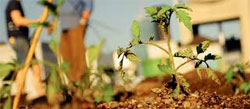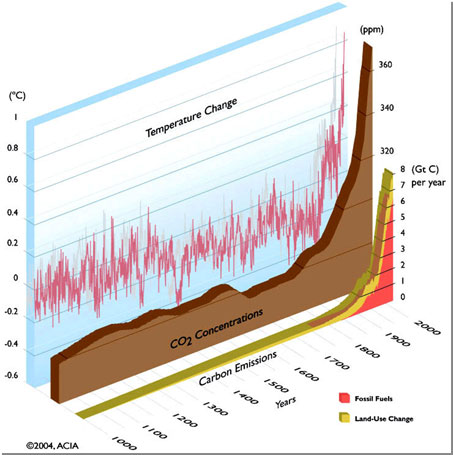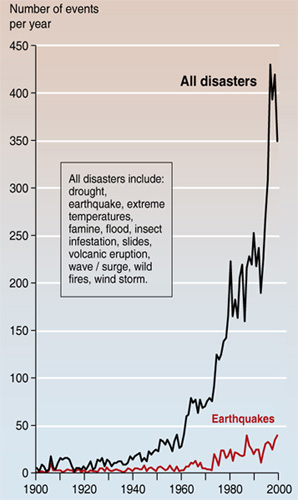What is carbon offsetting?
Scientific consensus states that carbon emissions must be reduced by 80% by 2050 to avoid catastrophic climate change. We each have an important and essential role to play in meeting these targets and carbon offsetting enables us to do our part in an easy and effective way.
 A carbon offset represents a reduction in emissions somewhere else - like a renewable energy or reforestation project - to balance out the emissions you cannot reduce. Carbon offsets are the only way to get your carbon footprint to zero today. A carbon offset represents a reduction in emissions somewhere else - like a renewable energy or reforestation project - to balance out the emissions you cannot reduce. Carbon offsets are the only way to get your carbon footprint to zero today.
Carbon offsetting is often the fastest way to achieve the deepest reductions of greenhouse gas emissions and it also often delivers added benefits at the project site, such as community development programs and the protection of threatened ecosystems. You can rest assured that your money is bringing effective change to the climate change battle while providing local benefits to the Cayman Islands.  |
Is this a real emission reduction?
Yes, and no. For example, your business is unable to reduce 100 tonnes of its CO2 emissions in the short term. Island Offsets has a project which could save 100 tons easily, but doesn’t have the funds to set the project in motion. Through our "Pay it Forward" programme, you provide the financial assistance to subsidize the cost of a project to cut carbon emissions and have enabled a savings of 100 tonnes of CO2. Your business has therefore reduced global net CO2 emissions by 100 tonnes and effectively erased your carbon footprint. This is a very real reduction in global carbon levels that will help alleviate the effects of climate change.
To be clear, however, a carbon offset, an emissions reduction credit, and a carbon credit are generic terms that generally represent a verified reduction in greenhouse gas emissions. Carbon offsets are commodities that are commercialized, sold, and retired within compliance and voluntary markets. Although Island Offsets' "Pay it Forward" programme does not trade in these markets, it is nonetheless creating real carbon reduction effects that will be felt not just on a global scale, but locally in the Cayman Islands as well. This programme then goes beyond international standards by also preserving important and unique local biodiversity, contributing to energy independence and promoting science education in Cayman's classrooms. Your involvement in this programme goes further than traditional offset projects and has tangible effects that will be felt right here at home.  |
What is climate change?
The earth’s atmosphere naturally traps heat from the sun, a process called the “greenhouse effect”, which makes the planet habitable for humans and other life forms. Greenhouse gases (GHGs) are the gases in the atmosphere that trap the heat. From the end of the last Ice Age to the end of the 18th century, the levels of greenhouse gases in the atmosphere remained fairly constant and at a level sufficient to sustain life as we know it today. Since the Industrial Revolution 200 years ago, human activity has been releasing unprecedented amounts of greenhouse gases into the atmosphere, which trap more heat, amplifying the natural greenhouse effect.

According to the United Nations Intergovernmental Panel on Climate Change (IPCC), which is comprised of the world’s leading scientific experts in the field of climate change, the global climate is undergoing dramatic changes as the direct result of greenhouse gas emissions from human activity. Without effective action to halt the rise and then reduce the levels of greenhouse gases released, countries worldwide and their citizens face a dire future.
 Consequences are expected to include more hurricanes, tornadoes, flooding rivers, drowning of low-lying islands, increased disease, and massive global economic disruption. In many regions agriculture will be adversely affected by water shortages and extreme heat. The effects on the natural world will also be severe and may include the loss of coral reefs as oceans warm and of tropical forests as fires become more frequent. These impacts will be felt in economic terms and the pressure on already stressed world financial systems could be catastrophic. There will also be social consequences with mass human migrations from lands affected by drought and famine and extreme heat stress in urban areas. Consequences are expected to include more hurricanes, tornadoes, flooding rivers, drowning of low-lying islands, increased disease, and massive global economic disruption. In many regions agriculture will be adversely affected by water shortages and extreme heat. The effects on the natural world will also be severe and may include the loss of coral reefs as oceans warm and of tropical forests as fires become more frequent. These impacts will be felt in economic terms and the pressure on already stressed world financial systems could be catastrophic. There will also be social consequences with mass human migrations from lands affected by drought and famine and extreme heat stress in urban areas.
Climate change is already apparent as evidenced by higher temperatures, rising sea levels, increased ocean acidity and ice melt. We’ve all seen the evidence in our own lives. All of the ten warmest average annual global temperatures recorded since the end of the 19th century have occurred in the last 15 years. According to the IPCC these trends are set to accelerate into the 21st century. Today, all but a tiny handful of climate scientists (near 98%) are convinced that the earth’s climate is heating up and that human activities are to blame.
Fortunately, many technological solutions exist for reducing greenhouse gas emissions. While these technologies come with a price, it is far outweighed by the costs of inaction. Although financing these technologies remains a challenge, new sources of finance, such as carbon offsets, will mobilize the necessary investment and financial flows to address our response to climate change. Your commitment to making a change today in your own life can have dramatic benefits for the future. 
|